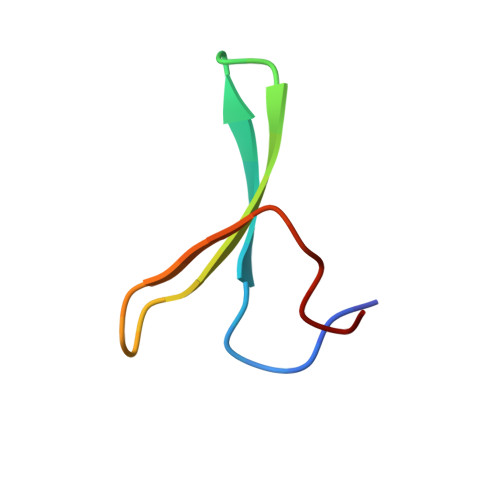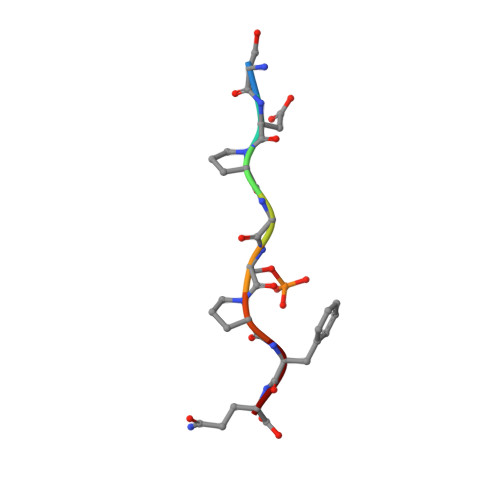A Smad action turnover switch operated by WW domain readers of a phosphoserine code.
Aragon, E., Goerner, N., Zaromytidou, A.I., Xi, Q., Escobedo, A., Massague, J., Macias, M.J.(2011) Genes Dev 25: 1275-1288
- PubMed: 21685363
- DOI: https://doi.org/10.1101/gad.2060811
- Primary Citation of Related Structures:
2LAJ, 2LAW, 2LAX, 2LAY, 2LAZ, 2LB0, 2LB1, 2LB2, 2LB3 - PubMed Abstract:
When directed to the nucleus by TGF-β or BMP signals, Smad proteins undergo cyclin-dependent kinase 8/9 (CDK8/9) and glycogen synthase kinase-3 (GSK3) phosphorylations that mediate the binding of YAP and Pin1 for transcriptional action, and of ubiquitin ligases Smurf1 and Nedd4L for Smad destruction. Here we demonstrate that there is an order of events-Smad activation first and destruction later-and that it is controlled by a switch in the recognition of Smad phosphoserines by WW domains in their binding partners. In the BMP pathway, Smad1 phosphorylation by CDK8/9 creates binding sites for the WW domains of YAP, and subsequent phosphorylation by GSK3 switches off YAP binding and adds binding sites for Smurf1 WW domains. Similarly, in the TGF-β pathway, Smad3 phosphorylation by CDK8/9 creates binding sites for Pin1 and GSK3, then adds sites to enhance Nedd4L binding. Thus, a Smad phosphoserine code and a set of WW domain code readers provide an efficient solution to the problem of coupling TGF-β signal delivery to turnover of the Smad signal transducers.
Organizational Affiliation:
Structural and Computational Biology Programme, Institute for Research in Biomedicine, Barcelona, Spain.
















